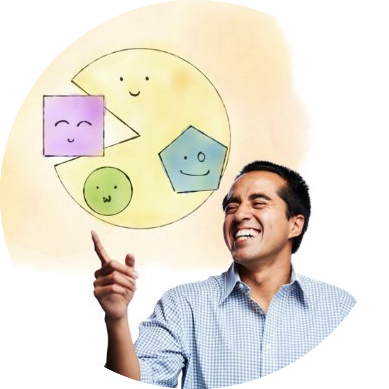Mentorship
There is much to write and share about mentorship! 🎉 [1]
In the meantime, below is a excerpt I helped write alongside others in The Open Source Way 2.0 and mentorship.guide Thanks to all contributors!
What is mentorship?
Mentorship means different things to different people, depending on their situation, context, culture, and more.
To some, for example, mentorship is a formal activity involving a schedule and agenda. To others, mentorship is an informal process among peers; it can even be a one-time conversation. If you ask people to define "mentorship," you will most likely receive wide-ranging responses.
That is what makes mentorship such an important and powerful concept: it is both universal and personal.
It’s universal insofar as it has potential to be a positive experience for anyone, yet personal insofar as it occurs differently for every individual and in every relationship.
Therefore, one way of thinking of mentorship is the following:
Mentorship is an act, experience, and opportunity to share what you can, when you can, how you can.
Why is mentorship important
Mentorship is important. It helps you, it helps others, it helps the community, and it helps the open source project.
It helps you
Mentoring can be a personally rewarding experience. The help and guidance you offer can have valuable, lasting benefits. For example:
- Experience the positive emotions of giving back.
- Learn more about yourself.
- Find knowledge gaps in your own thinking.
- Learn something new.
- Expand your world view.
- Make a new friend, ally, or supporter.
- And more.
It helps others
Mentorship helps contributors navigating different stages of their careers or different life circumstances. Mentorship has the potential for positive impact (big and small, yet valuable just the same), whether it occurs among people in a specific project of initiative, in general as people get started with the project, and as people grow and advance in their educations and careers.
It helps the community
Mentoriship has a cumulative effect on community coherence and identity. It might begin between two people, when one person mentors another. But that person may mentor someone else in turn—and the positive ripple effect continues. It might even become a sort of "boomerang of help" that returns to you when you need a helping hand or some advice.
At scale, it helps contribute towards more inclusive, collaborative, helpful, and innovative communities.
It helps the project
Creating a culture of mentorship—or even a sopecific mentoring program—is important and valuable to the long-term health of an open source project. The rest of this chapter will discuss those benefits specifically.
Forms and styles of mentorship
Recall that mentorship is an act, experience, and opportunity to share what you can, when you can, how you can.
In an open source project, this can manifest in various ways. It can be informal, formal, peer-to-peer, mentor-to-mentee, and other variants. The relationship dynamics can also differ, such to one-to-one, one-to-many, and many-to-many. The how and when communication occurs also varies, such as asynchronous or synchronous. The kinds of questions being asked and the responses can also influence how mentorship occurs.
Another thing to keep in mind is how people mentor and the different roles they assume. Below are some type of styles (not an exhaustive list, there are plenty).
Educator
- Teach and inform on concepts, ideas, and more.
- Help explain and clarify material.
- Share knowledge and experiences.
Encourager
- Provide encouragement.
- Remind them of their progress, accomplishments.
- Fuel potential to keep doing great work.
Listener
- Instead of solely providing answers and guidance, actively listen.
- Radiate solidarity and acknowledge that folks are being heard.
Finder/Researcher
- Discover questions/resources/people that can provide insights.
Connector
- Share resources such as articles, books, media, events, and programs. Introduce people to each other
In summary, it is beneficial to acknowledge that mentorship can go beyond traditionally providing guidance. There are various ways to mentor and in doing so, it provides valuable and lasting benefits for the contributors, open source project, and community.
Additional readings
- mentorship.guide (open source project)
- Strategies, resources, advice, and community support for mentors and mentees
- The Open Source Way 2.0 (open source project)
- See See Creating a Culture of Mentorship
Sponsorship is important as well. Similar to mentorship.guide, stay tuned for a complementary guide called sponsorship.guide↩︎
